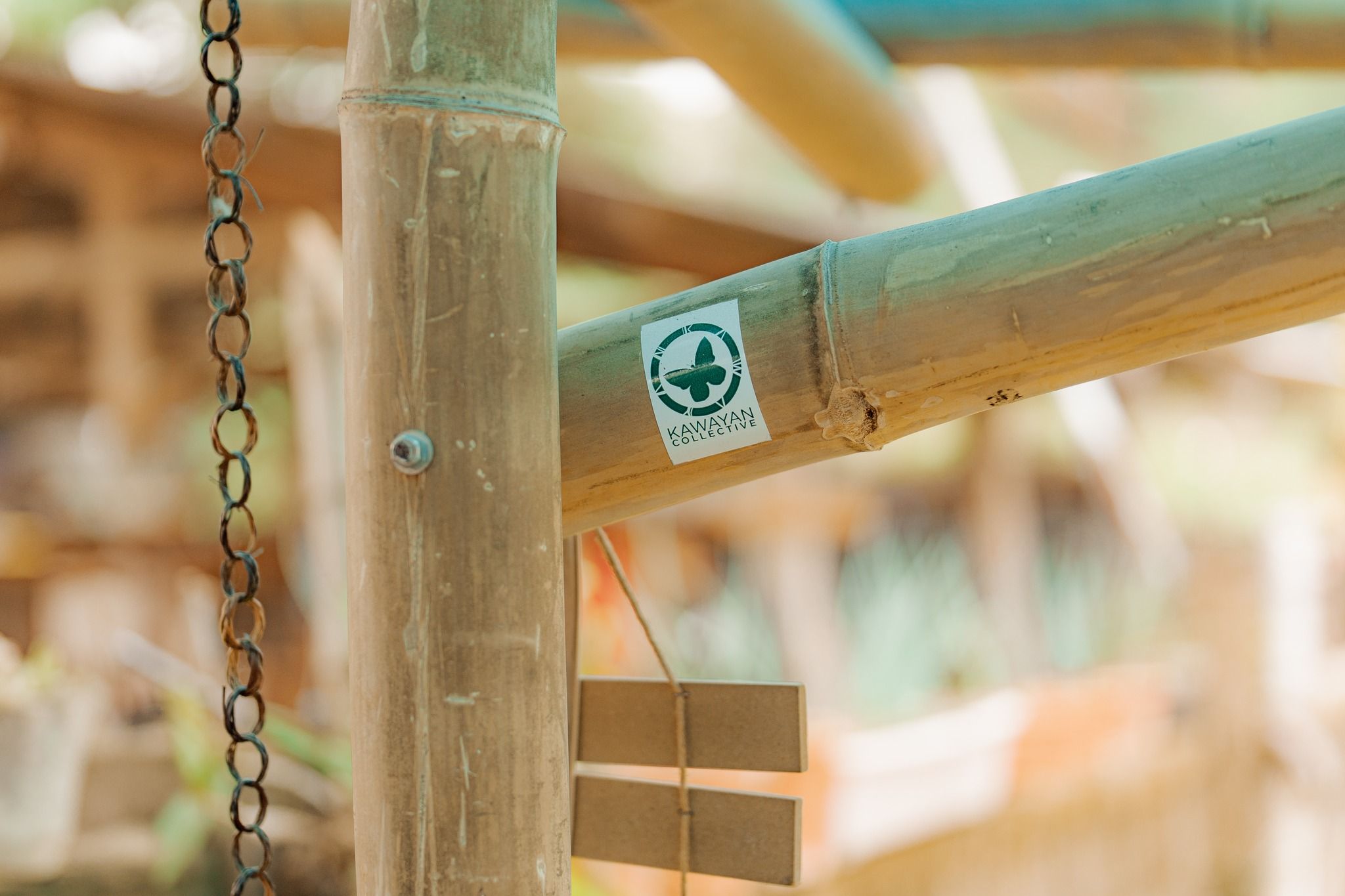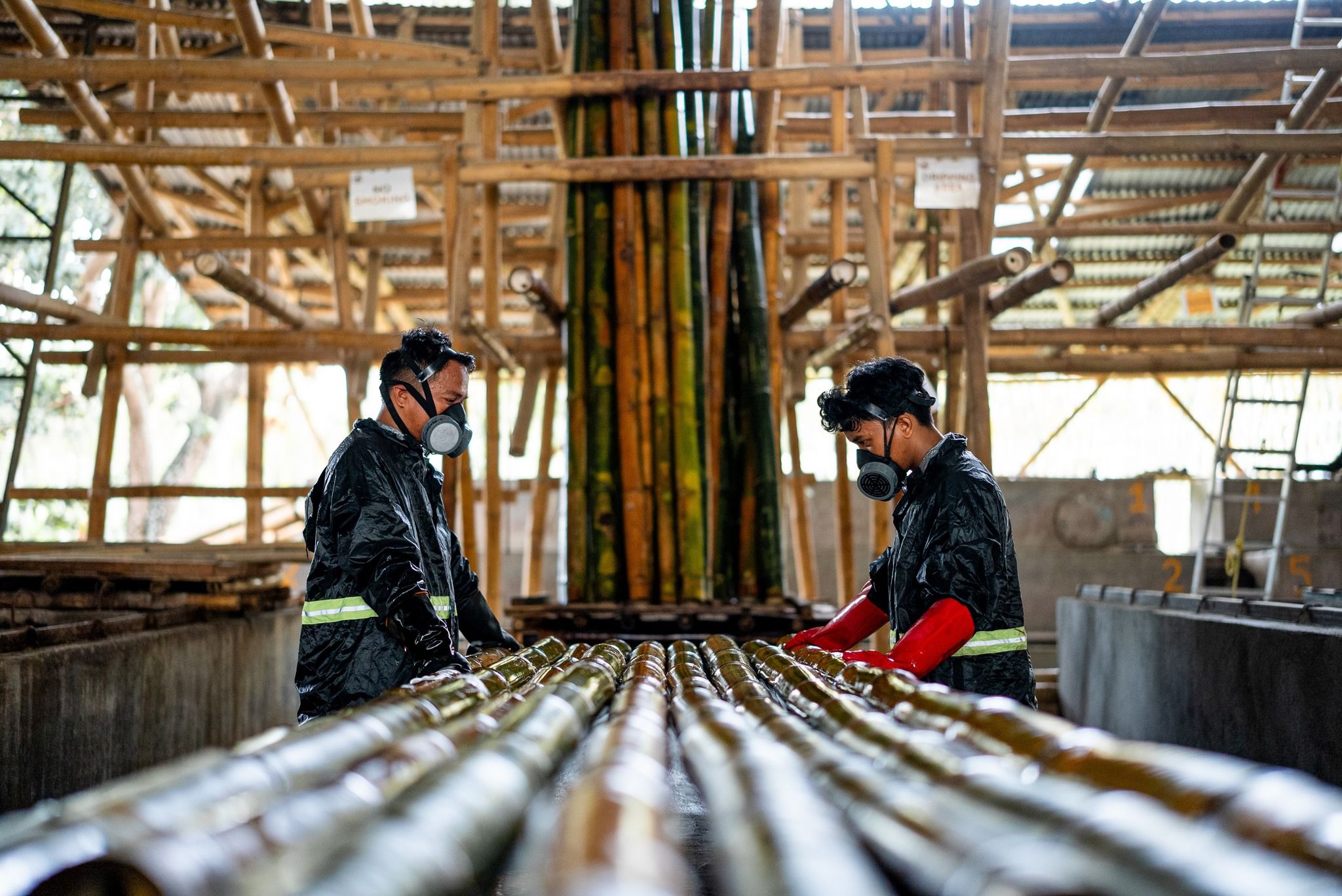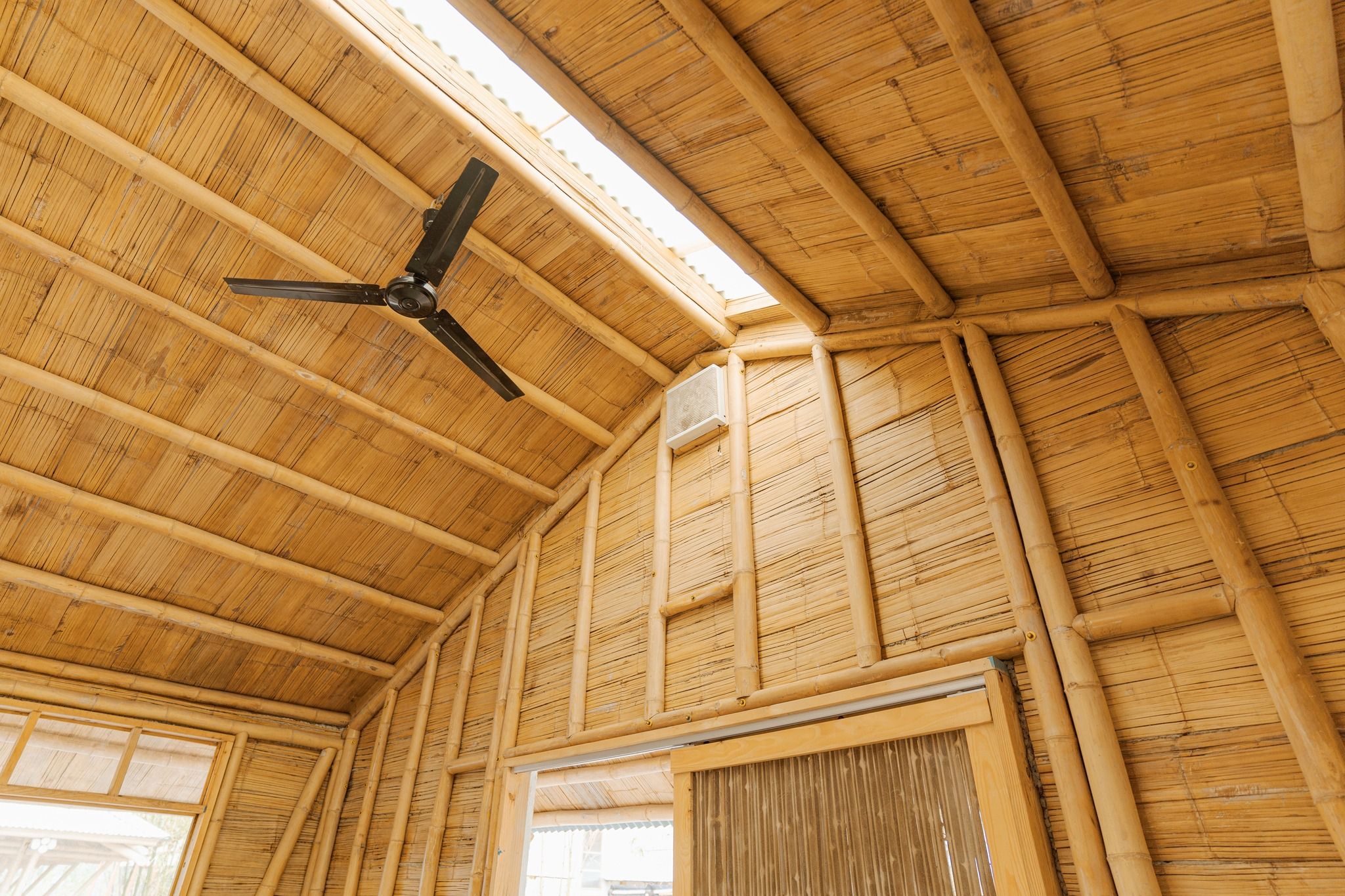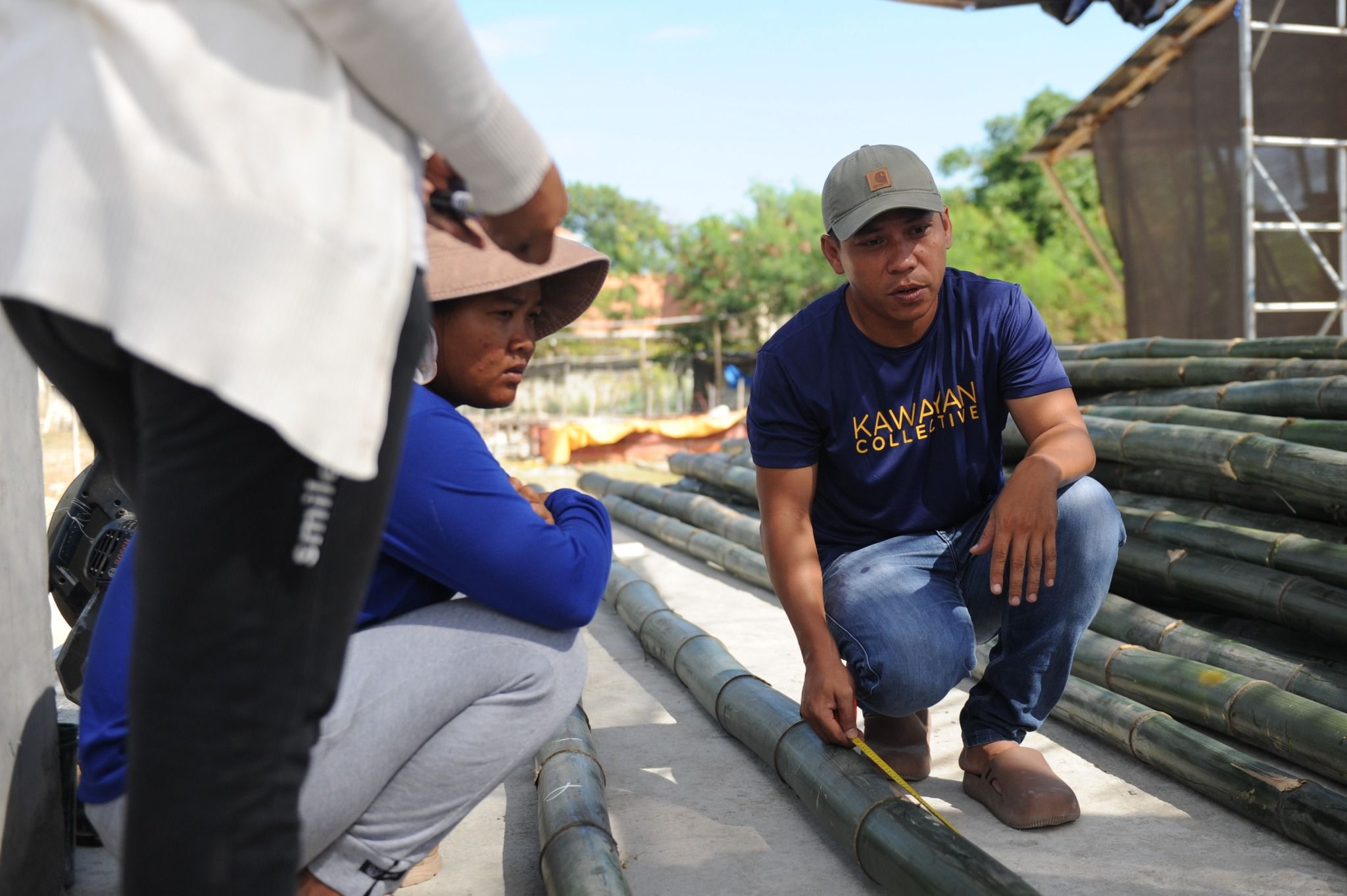Building lucrative business from sustainable materials
Turning skepticism into success: "We knew it was important to build trust in a material people assume won't last."

Imagine a building material, deeply rooted in Filipino tradition, that withstands the harshest storms, a symbol of unwavering strength. Yet, it's often relegated to temporary fixes or niche, high-end applications, its full potential untapped.
But what if that perception could be transformed? What if this material, when treated with innovation and a relentless commitment to quality, could become the foundation for sustainable homes and groundbreaking architecture?
Kawayan Collective Agriculture Cooperative, born from a single customer and a vision to challenge ingrained assumptions, is proving that eco-friendly construction isn't just a trend—it's a viable, durable, and economically sound path to the future.
Amy Villanueva, co-founder of Kawayan Collective, shared their journey with Manila Bulletin, revealing how overcoming skepticism and fostering community growth underscored that true resilience lies not just in the material, but in the unwavering belief of those who build with it.
A business's success often hinges on challenging and debunking assumptions, particularly misconceptions about reliability. For Kawayan Collective, this meant confronting doubts about their primary material.
Amy explained that skeptics frequently question the durability of their bamboo. “What we hear over and over is prone to infestation, right? [They’re] worried about the degradation of bamboo. So the assumption is bamboo cannot last. It's just a temporary material.’”
"That's why our business is centered around our treatment process. It's the first stage for any product we create."
While skepticism is inevitable, a key to overcoming client reluctance is offering a guaranteed warranty. "We’re [maybe] one of the bamboo companies that guarantees its product for a year," Amy said. "We replace anything with infestation. We knew it was important to build trust in a material people assume won't last."

To further build trust, Kawayan Collective invites clients to observe their production and treatment process, aiding their decision-making.
Amy also emphasized the importance of convincing employees of the business's growth, not just customers.
Her solution is to educate professionals and other stakeholders on how to utilize their product, further attracting buyers and reducing potential clients' doubts.
“[We’re] continuing education for professionals, our engineers, contractors, architects, to learn how to design and evaluate bamboo buildings, which is fantastic structurally,” she said.

Not a temporary fix
When selling sustainable materials, some assume they are temporary substitutes for something more substantial—a status quo bias.
“There’s an extreme polarization that we see in the Philippines. We call it the last resort or the high-end resort– that bamboo for a long time has only been seen as the house that nobody wants because it’s the free house that just gets patched together,” she elaborated.
Amy acknowledged that some seek a temporary solution, adding, “The second that the family has any sort of means, any money saved up, they’re going to move into the concrete house because they want to get out of the bamboo. Which we can understand, there’s that assumption on durability, or that it’s high maintenance.”
However, these assumptions did not hinder Kawayan Collective, which has established itself as a champion of sustainability, cost-effectiveness, and economic value.
“The whole [bamboo business] process will be a bit costly, but it would be worth it, depending on the business. There was a fantastic one we got to be a part of in Dumaguete called the Bamboo Pavilion, which is part of the Henry Hotel and it’s the tallest bamboo building in the Philippines,” she cited.
“This magnificent building kind of blew people’s minds and thought this is what we could do.”
Beyond architectural feats, Kawayan Collective has made inroads in the housing industry with adjustable and expandable starter home kits, catering to families, businesses, and more.

Growing family
Amy pointed out that a company's success is not just about increasing revenues and gaining consumers, but also fostering positive employee relations.
Economic growth often creates employment opportunities. Kawayan Collective became one of the few small businesses that increased job opportunities in their communities.
“Our team could get better-paying jobs but they stayed because of their investment in our mission,” she said.
Since its development in 2019, the company's team has grown from seven to 40 people. Balancing employee morale with product quality is essential.
“We always remind ourselves when we’re getting aggravated and frustrated on the processes, it wouldn’t be possible if there weren’t more people,” Amy shared.
“Envisioning a home for all Filipinos will need more people to buy into that vision– we need more contributors.”
To enhance productivity and improve employee relations, Kawayan Collective's branches hold monthly general assemblies to discuss matters and ensure employee satisfaction.
“You [must be able] to connect to your people and they should feel that they’re contributing significantly,” she suggested.
Kawayan Collective has not only increased its workforce but also expanded its reach.
Clients, 75 percent of whom reside in Central Visayas, helped them open a new branch in Tarlac in January.
The company plans to build another lumberyard space in Negros Oriental, focusing on expanding to three main regions by 2025.
“Despite fears of unknowns, our board decided it was worth the risk,” she said.
To encourage aspiring business owners, Amy assured them that growth is achieved by aligning changes with business goals, despite the challenges of convincing people to buy, join, and expand.
“It’s important to be conservative. During our first year, we only had one customer and only ₱3 million in revenues. Then after six years, we’re now over ₱400 million. Many of them are repeat (or suki), which helped increase our revenues seven times,” she said.
Her advice to those starting out: be flexible, envision worst-case scenarios, and leverage social media.